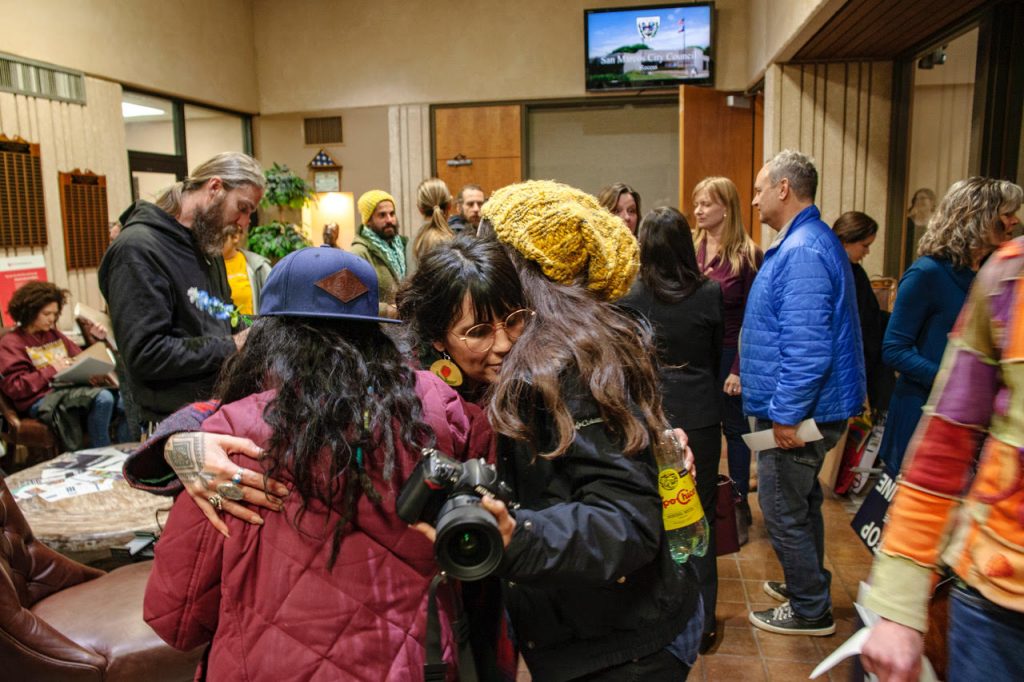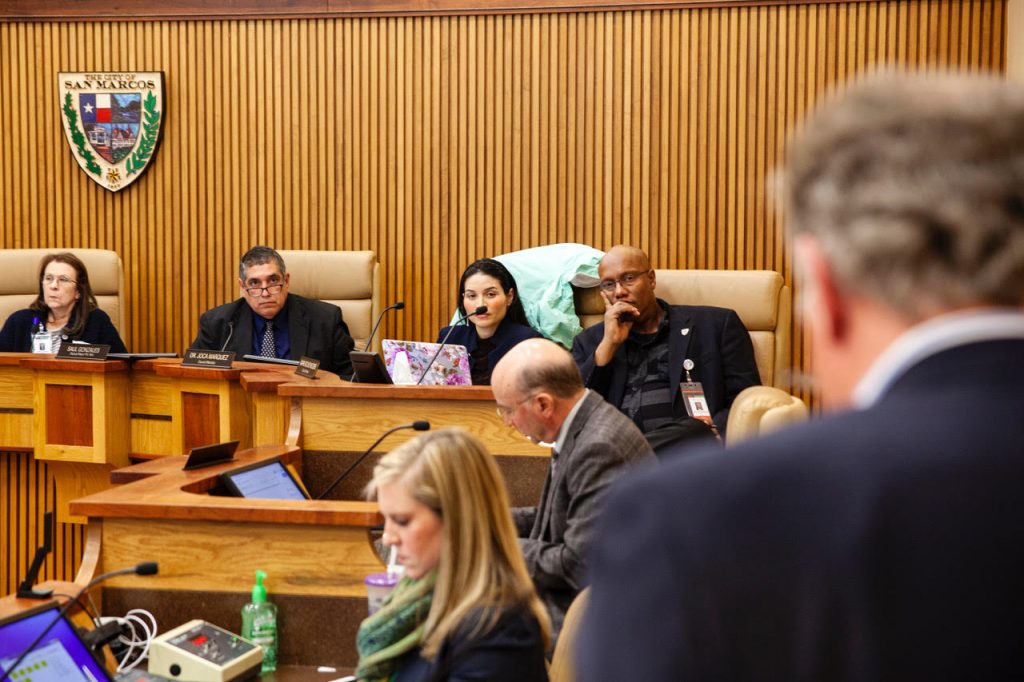
Opponents of Kinder Morgan’s planned Permian Highway Pipeline (PHP) project and supporters of the Wimberley Valley Watershed Association celebrated the passing of a resolution by the San Marcos City Council that officially objects to the company’s intended route for the pipeline. Council members voted unanimously to support the resolution during the council meeting on Tuesday, March 5.
Every seat in the Council Chambers at San Marcos City Hall was filled for the meeting and more than three dozen additional attendees listened in from the adjacent lobby, with many holding signs to show opposition to the pipeline and support for the resolution.
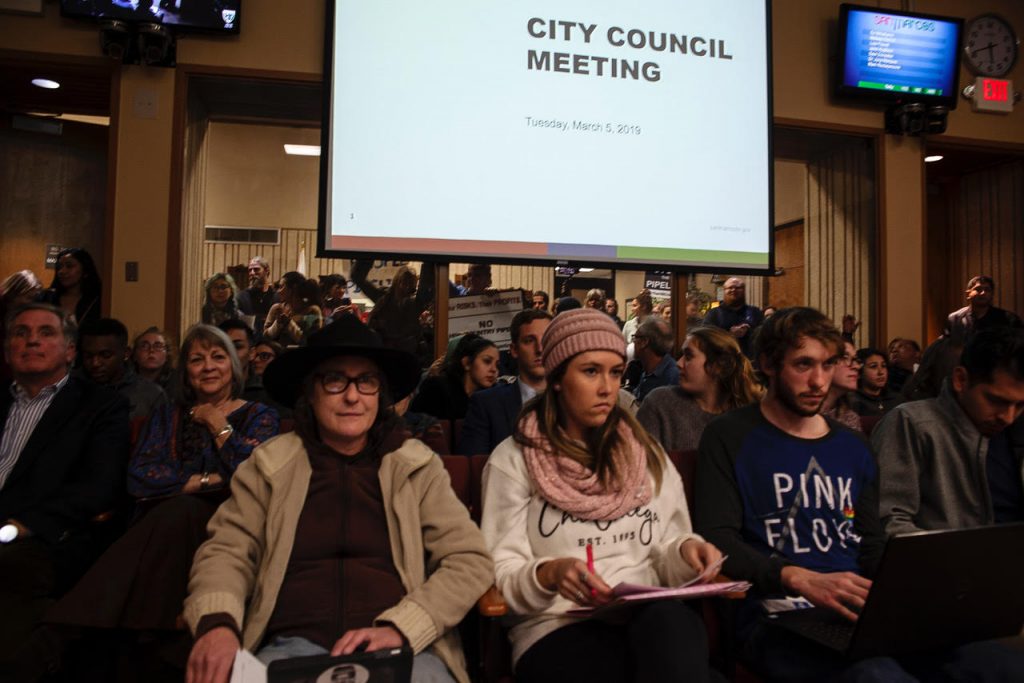
The resolution states specific opposition to the pipeline project by the City of San Marcos on “behalf of the interests of its citizens and in recognition of the potential harm the PHP poses to its natural and economic resources,” and formally requests immediate actions by “all members of both houses of the Texas Legislature to protect landowners, landowners’ property rights and communities from the negative impact of PHP and other potential oil and gas pipelines.”
The meeting began with a 30-minute public comment period. Several area residents spoke directly to the council to argue in favor of the resolution during this time. Following the public comment period, a single representative from each side of the issue was given 10 minutes to make their case for or against the resolution.
First, Greg Neal, who later stated that he was at the meeting in the capacity of a consultant for Kinder Morgan, addressed the council to request that they reject the resolution. Neal argued that there is an opportunity for local municipal governing bodies to work with the pipeline company rather than sending the issue to the state legislature. He expressed doubt that the state legislature would have the ability to address the concerns raised by those opposing the pipeline route and current eminent domain laws in time to affect the PHP project, which he said is slated to begin operating in 2020.
Near the end of Neal’s statement, he asked, “Have those opposed to the PHP pipeline brought forth any solid evidence of the negative impact, or is it speculation and conjecture?”
“I say to every Texan who can hear my voice this evening, if we have challenges, let’s find a way. If we have questions, let’s discover answers, and if we run into real difficulties, let’s work together,” Neal said in conclusion.
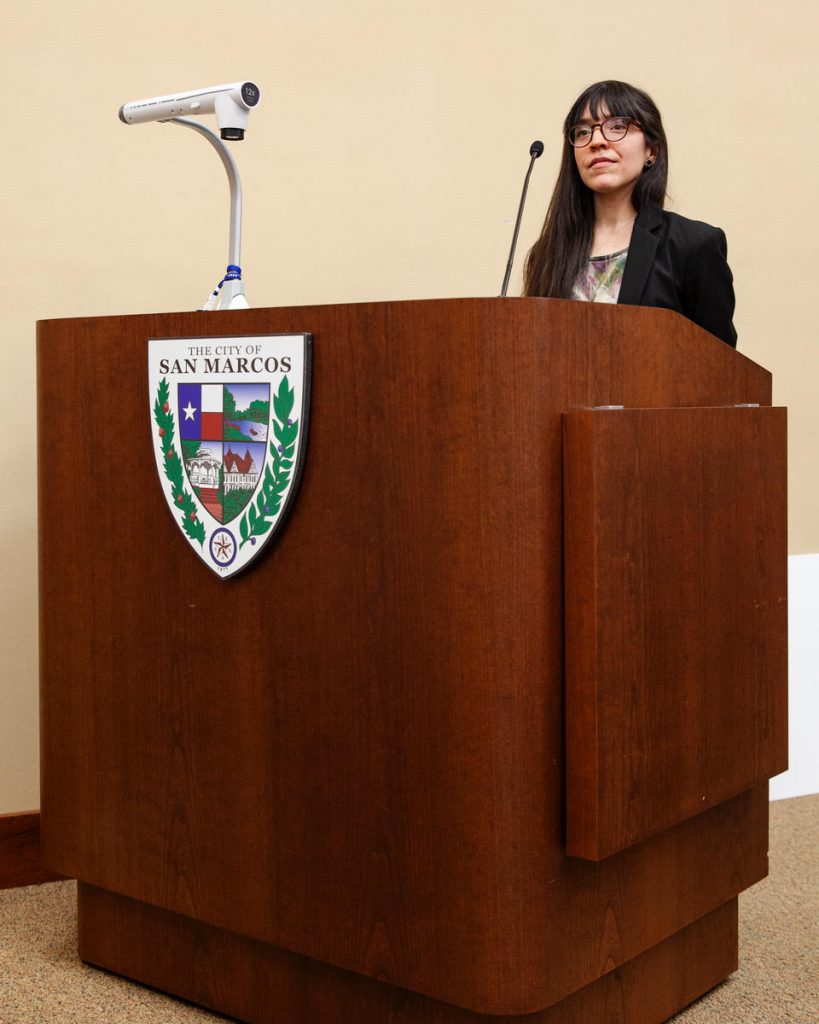
Ashley Waymouth, Managing Director of Wimberley Valley Watershed Association (WVWA), followed with a presentation on behalf of those in support of the resolution. After introducing herself as a 9th-generation Texan, Waymouth shared a series of scientific data-based maps provided by Barton Springs-Edwards Aquifer Conservation District, the Edwards Aquifer Authority, Hays Trinity Groundwater Conservation District, as well as, “some of the experts we employ,” she said.
The maps showed the proposed route of the pipeline in relation to geologically and environmentally sensitive areas, and highlighted language in Kinder Morgan’s proposed contracts that clearly give the company authority to use the pipeline to transport “oil, petroleum and its associated hydrocarbon substances on, in over, under, through and across” land it occupies.
Waymouth also noted specific language in the contract that allows Kinder Morgan broad authority to adjust the depth of the pipeline in instances where the route encounters “rock.”
“I understand they had experts and scientists looking at this region,” said Waymouth. “I’m wondering if they found any rock here.”
Having provided the evidence that the pipeline could carry liquid fossil fuel material at Kinder Morgan’s discretion, Waymouth went on to show diagrams and maps detailing the functional process and porous nature of the Edwards Aquifer recharge zone, and cited several dye-test studies that have proven the ability of water from the Blanco River to travel underground and reappear in the San Marcos Springs, Barton Springs, as well as through wells sourced by the aquifer.
Waymouth concluded her presentation by noting that pipeline breaks and product spills do occur, as can be seen in numerous reports on such events across the country.
The council then took the opportunity to ask questions of both presenters. Place 1 Councilwoman Lisa Prewitt summoned Mr. Neal to the podium and asked,
“After learning about how pristine and precious and sensitive this environment is, and if you had a spill into the aquifer there would be no way to clean it up, why would you not be able to consider a different route?”
Neal stated that he was in attendance as a consultant and would not be answering specific questions about routing, referring the council instead to Kinder Morgan Vice President Allen Fore, whom he said was prepared and eager to have conversations with local governing bodies about their concerns, but whom was not present at the meeting.
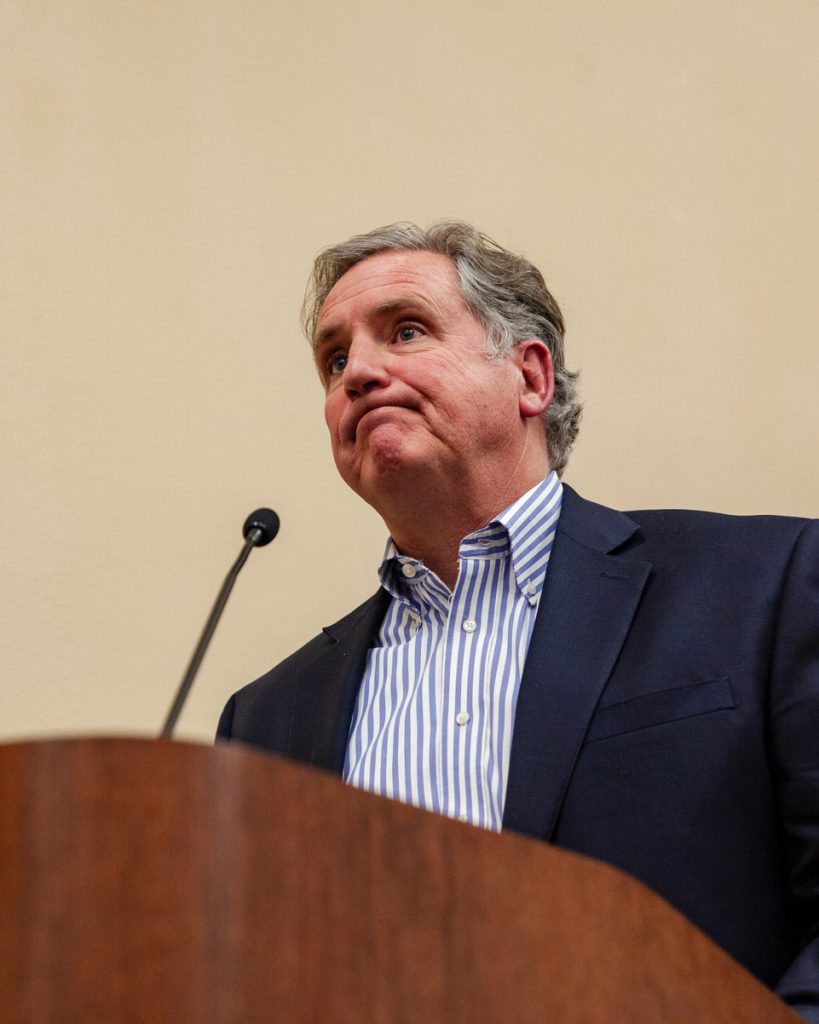
At that juncture, some members of the council began to express astonishment that Kinder Morgan had not seemed to be directly addressing the concerns and questions of area residents, businesses and organizations, even during a formal meeting with a governing body that seemed a perfect opportunity to do so.
“I’m going to throw this question out there to Mr. Neal, and let me know if you can answer this or not, and if not you can take it to Kinder Morgan as a huge concern of mine” started Councilwoman Prewitt, directing attention to a map provided by Waymouth that shows the pipeline route, two potentially alternate routes, and population densities along those routes.
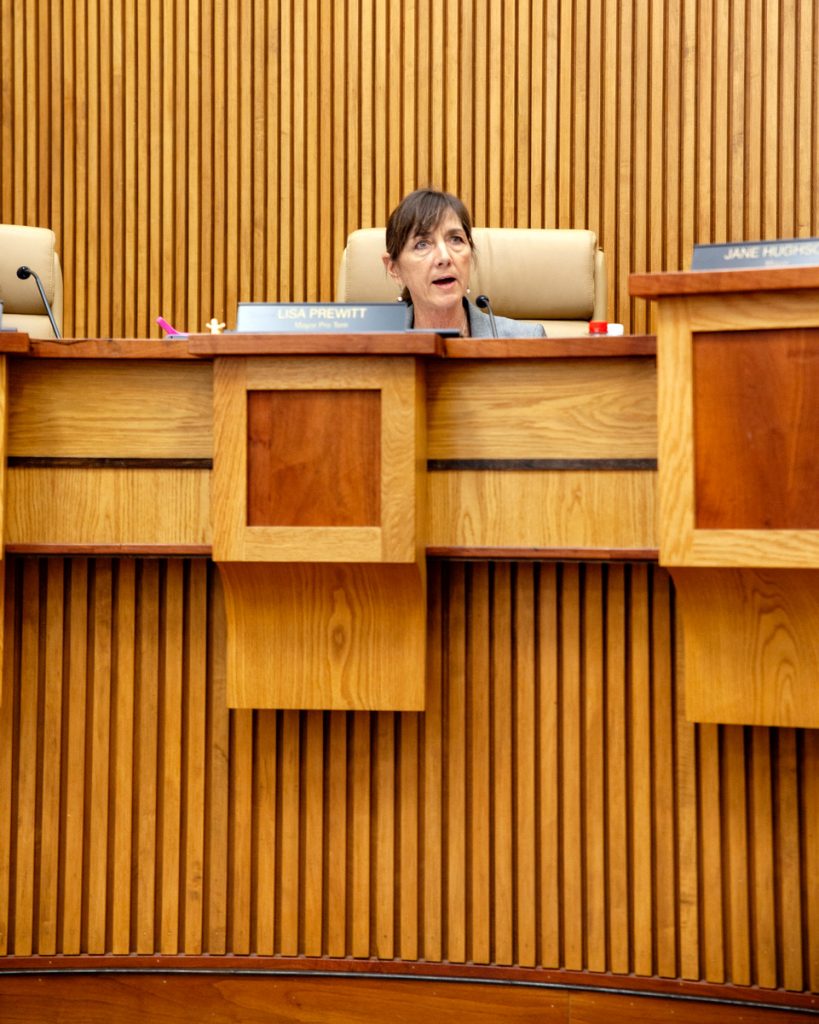
“most-densified areas of this region.”
“The existing route goes through one of the most heavily-densified areas of this region … I can’t even contemplate why that is a route chosen. It goes through areas where there are neighborhoods, subdivisions, schools, and with [an evacuation zone] of 1.4 miles around the pipeline, I can’t even imagine why that’s a consideration,” she stated. “Why in God’s name would you choose that route? That’s where people live.”
Neal responded that he believes Fore would be “more than happy” to talk about the criteria of the routing.
Place 3 Councilman Ed Mihalkanin expressed dismay that Texas law has granted eminent domain authority to private, for-profit energy companies. “I’m just stunned that this action to grant such authority was given in the past and it still existing,” said Mihalkanin.
Place 2 Councilman Saul Gonzalez added, “If this is really that important to this company I think the President and Vice President would be here.”
Mayor Jane Hughson then moved to vote on the resolution, which immediately passed 7-0. Cheers erupted from the crowd in attendance.
“I feel like the council did the right thing,” said WVWA Executive Director David Baker following the meeting. “The council did a good job of asking important questions to Kinder Morgan and their consultant didn’t have an answer for them.”
“I hope the Kinder Morgan decision makers will directly answer and respond to the questions and concerns that the WVWA and the San Marcos City Council asked at the meeting tonight. The community deserves to know how Kinder Morgan plans to protect our drinking water and San Marcos Springs from an oil or gasoline spill. The ideal outcome would be to for Kinder Morgan to respond to the overwhelming scientific evidence of the threats this route poses to the Hill Country and for company leaders to make a decision to reroute the Permian Highway Pipeline out of the Edwards Trinity Aquifer recharge zones and do the right thing for the future of Texas”
